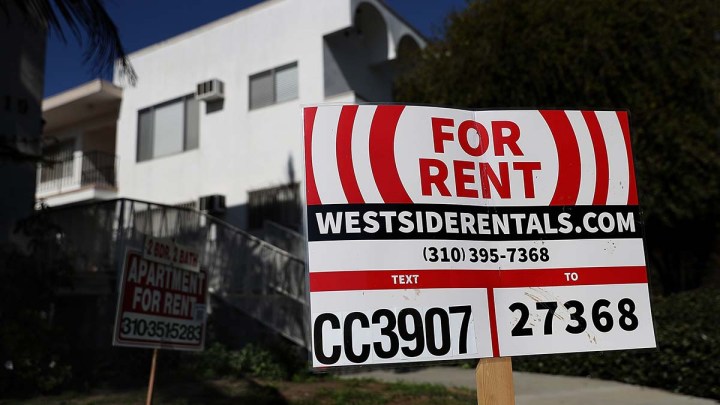
What high mortgage rates have to do with your rent

The housing market may have turned a corner: Home prices rose 0.8% in February on a monthly basis, according to the CoreLogic Home Price Index.
Mortgage interest rates have trended lower from their November peak, albeit with some major swings. But they’re still well higher than they were before the pandemic. The rate for a 30-year mortgage is sitting at just under 7%, compared to roughly 3.7% at the end of 2019.
We know high rates make buying a home more difficult, but they can affect rents too. You know what a lot of people do when mortgage rates are too high to buy?
“They’ll stay in the rental market longer,” said Andrew Justus, a housing policy analyst at the Niskanen Center. “So if existing renters stay and new renters keep coming, the only thing that changes is price.”
In other words, the rent goes up. “And it makes it harder for everyone to afford their rent month to month,” Justus added.
Some analysts question this theory because the overall supply of homes can change, and unbought homes can be converted to rentals. But if there were ever a year when people were trapped into renting, it was last year, per Logan Mohtashami, lead analyst for HousingWire.
“We had the biggest mortgage rate spike in recent modern-day history,” he said, “so definitely there were some first-time homebuyers that were renters that say, ‘Listen, I can’t even afford to buy a house at 7% mortgage rates.'”
But despite all those trapped renters, rent inflation has declined. One reason is that supply has come to the rescue. At least a little bit.
“New construction of rental housing, particularly multifamily housing, has been booming over the last six months,” said Lisa Sturtevant, chief economist with Bright MLS, a real estate data company in the mid-Atlantic region. “So in many markets, there are a lot more rental options now than there were even just a year ago.”
A lot of those options are provided by projects launched in the low-interest-rate era before the pandemic. They were put on hold because of COVID and supply chain problems. In April of last year, people were starting to build homes faster than at any time since 2006. The pace has come down, but it’s still higher than in 2019 — the pipeline is just that long and backed up.
Does this herald a new future of abundant housing for renters and buyers alike? No, it does not.
“We do need more supply of housing,” said Dean Baker, senior economist at the Center for Economic and Policy Research.
Today’s high interest rates make it more expensive for builders to build tomorrow’s homes.
“No doubt about if we see these high rates for another year or two years, it will be felt in terms of less housing supply,” Baker said.
In that case, the housing market of tomorrow won’t have enough homes — just like the housing market of today, and yesterday, and before the pandemic.
There’s a lot happening in the world. Through it all, Marketplace is here for you.
You rely on Marketplace to break down the world’s events and tell you how it affects you in a fact-based, approachable way. We rely on your financial support to keep making that possible.
Your donation today powers the independent journalism that you rely on. For just $5/month, you can help sustain Marketplace so we can keep reporting on the things that matter to you.











